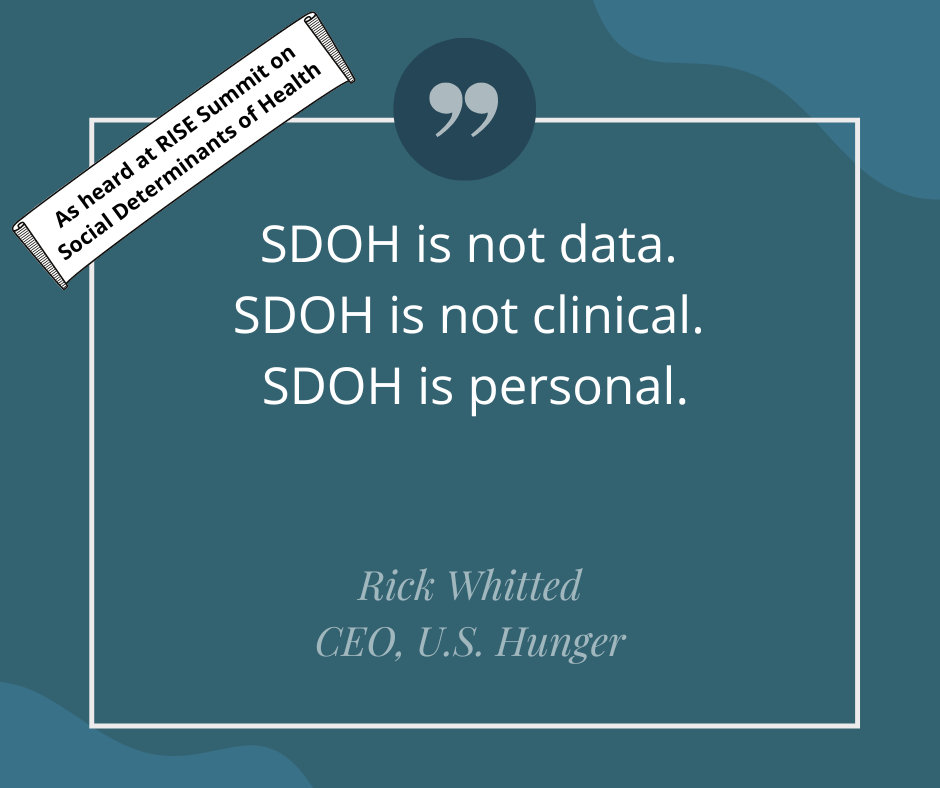The RISE Summit on Social Determinants of Health (“the Summit”) focused on driving health equity forward and celebrated strides being made towards this endeavor. At the same time, however, the Summit highlighted that there is still a significant distance to travel to achieve improved and equitable health outcomes for those impacted by social determinants of health (“SDOH”).
One of the most important takeaways of the Summit was not a huge scientific breakthrough, it was actually an important reminder about something seemingly simple - listen to the people who have lived experiences, understand their needs and the needs of their communities, and amplify their voices.

Getting to that community level, engaging members and showing empathy were key themes addressed in the pursuit of truly making a meaningful difference in SDOH-care. The utilization of community health workers and embarking in community engaged research projects were flagged as useful tools to build trust and to meet community members where they live.
To that end, data collection was also called out during the Summit. Specifically the importance of collecting the right data that can be used to highlight the needs of communities. This includes better qualitative data on the lived experiences of community members and improved data around what drives inequities. Reliable metrics and better data collection for these areas are imperative to accurately and consistently measure care being provided and the outcomes it produces. Data governance and consistent messaging around what the data means were mentioned as potential improvements towards data collection.
The need for more partnerships was also a focus of the Summit. Too much work is being done in silos. Federal policymakers need to be connected to community partners so they have the whole picture of what is really happening in communities. Clinicians need to be educated on how to deal with SDOH issues and what resources are available in their communities. Partnering with local community organizations and listening to the experiences and needs of their members could have a great impact.
.png?width=940&height=788&name=Copy%20of%20Quote%20template%20(1).png)
The Summit also addressed 1115 waivers and the growing trend of startups using them to build and scale innovative SDOH projects through Medicaid.
These takeaways don’t even begin to scratch the surface of all the great discussions that were had during the Summit. The event truly showcased that numerous health plan leaders, government officials, health care providers, community organizations, and service providers are dedicated and working extremely hard towards improving health equity and SDOH-care. My hope is that with more listening, more thoughtful data collection, and more collaborative partnerships, that we are actually going to see tangible results very soon!